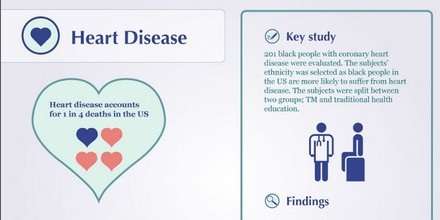Alcoholism is a serious problem in our society. It affects millions of people and causes many problems for those who suffer from it. But there are things you can do to help yourself stay sober. One of these is transcendental meditation.
One study found that participants who practiced TM could reduce their alcohol intake by nearly 50 percent after three months. The researchers believe that the practice helped them gain insight into why they drank and how much they needed to drink to feel satisfied.
You’ll Be More Productive
If you’re an alcoholic, you probably know how difficult it is to stop using alcohol. But there’s another reason you should consider trying transcendental meditation as part of your recovery program. Research shows that TM helps people quit drinking.
The technique has been shown to help people overcome addictions to drugs, cigarettes, and alcohol. In fact, studies show that people who practice transcendental meditation while undergoing treatment for substance abuse are less likely to relapse than those who receive standard care alone.
You’ll Have Better Sleep
Studies show that practicing TM regularly can improve sleep quality and quantity. This means that you’ll wake up feeling refreshed and ready to take on the day.
Besides improving sleep, TM has been shown to reduce stress levels and anxiety. The technique helps people focus on the present moment without being distracted by thoughts of the past or future. That means you’re less likely to get caught up in negative emotions and behaviors.
You’ll Feel Happier
Research shows that people who meditate felt happier, more productive, and better able to focus on work. They’re less likely to suffer from stress, anxiety, and depression. And they’re more likely to make healthier choices when faced with temptation.
The benefits of meditation go beyond mental health. A study published in the journal Alcoholism: Clinical and Experimental Research found that people who practiced transcendental meditation were less likely to become alcoholics than those who didn’t practice meditation. Researchers believe that meditation helps reduce cravings for alcohol because it reduces negative emotions, such as anger and frustration.
You’ll Reduce Stress
If you’ve ever tried to stop drinking alcohol, you probably know how difficult it can be. It’s not easy to give up something that gives you pleasure, even if it’s harmful to yourself. But transcendental meditation can help you overcome those challenges.
The practice of transcendental meditation has been around since ancient times. In fact, it’s one of the oldest forms of meditation practiced today. It involves focusing on a mantra (a word or phrase repeated silently) while sitting comfortably with your back straight. Eventually, you reach a state of deep relaxation where you feel completely calm and at peace.
You’ll Have Less Anxiety
Transcendental meditation helps you relax by focusing your attention inwardly. This allows you to focus on what’s happening inside your mind rather than outside it. As a result, you’re less likely to worry about things that aren’t under your control.
Besides reducing stress levels, practicing TM can help you manage your emotions better, which is especially important if you have a history of depression or anxiety. The researchers believe that the practice helped them gain insight into why they drank and how much they needed to drink to feel satisfied.
https://pubmed.ncbi.nlm.nih.gov/29471923/
https://www.ncbi.nlm.nih.gov/pmc/articles/PMC3087968/
Effectiveness of broad spectrum approaches to relapse prevention in severe alcoholism: A long-term, randomized, controlled trial of Transcendental Meditation, EMG biofeedback and electronic Neurotherapy
Authors: Taub, Edward; Steiner, Solomon S.; Weingarten, Eric; Walton, Kenneth G.
Published: Alcoholism Treatment Quarterly, Vol 11(1-2), 1994, 187-220
Methods: Severe, chronic, highly transient alcoholics treated at Rehabilitation Center for Alcoholics and District of Columbia Veterans home, residential facility were randomly assigned to groups receiving Transcendental Meditation (TM), EMG biofeedback (BF) or electronic neurotherapy (NT) combined with routine AA and counselling and control group receiving only the routine therapy (RT). Intensive follow-up procedures were used and information on alcohol consumption and other parameters (Social History Questionnaire and its follow-up, Profile of Mood States and Beta Intelligence Test) was collected over 18-month period.
Results: 6,12 and 18 months after leaving the treatment facility, Transcendental Meditation and BF groups exhibited significantly higher percentage of non-drinking days that routine therapy and neurotherapy groups. 65% of TM group and 55% of BF group reported complete abstinence 18 months following departure from treatment centre, compared to 25% of routine therapy and 28% of neurotherapy group. Subjects improved on subscales of Profile of Mood States in Transcendental Meditation group (5 out of 6 subscales) and BF group (2 our of 6 subscales), but not in routine therapy or neurotherapy group. The results suggest the usefulness of Transcendental Meditation and EMG biofeedback in alcohol relapse prevention.
![]() See other recent scientific research articles on Transcendental Meditation!
See other recent scientific research articles on Transcendental Meditation!



















